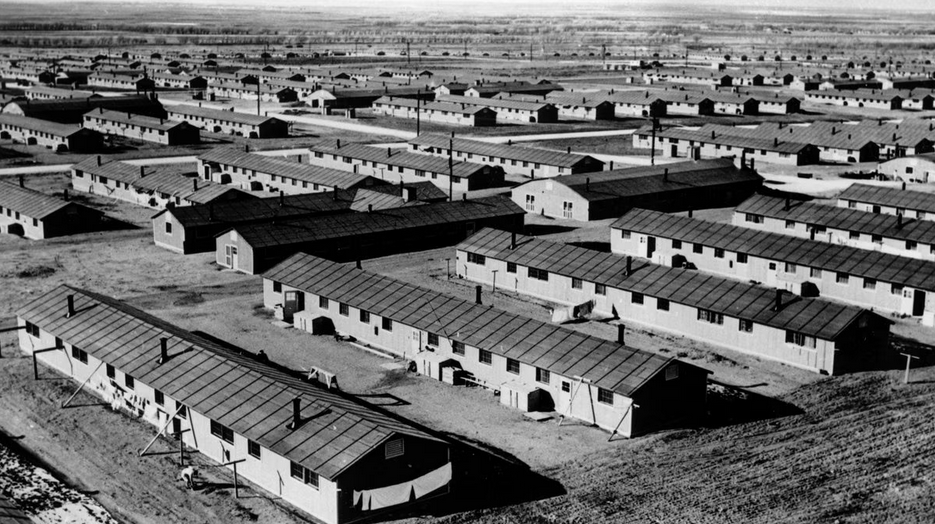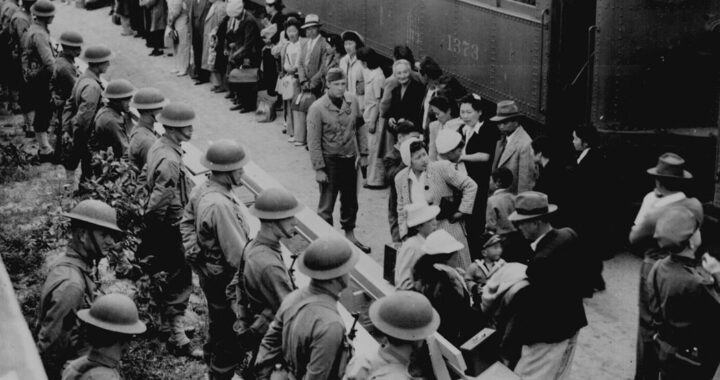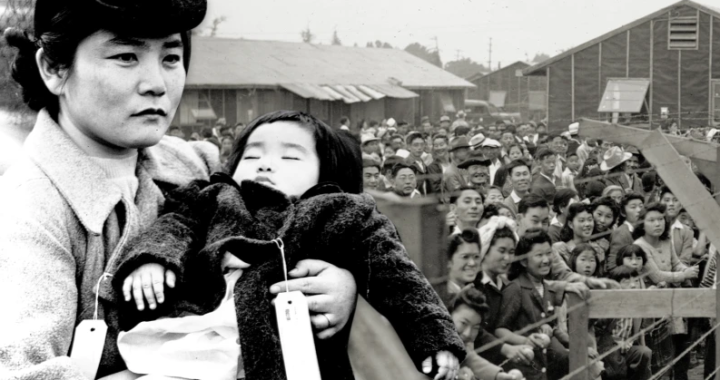Could Internment Style Camps be making a comeback under Democrat Leadership….in New York?
3 min read
News & Information

From 1942 to 1945, it was the policy of the U.S. government that people of Japanese descent, including U.S. citizens, would be incarcerated in isolated camps.
Japanese internment camps were established during World War II by President Democrat President Franklin D. Roosevelt through his Executive Order 9066.
On December 7, 1941, just hours after the bombing of Pearl Harbor, the FBI rounded-up 1,291 Japanese American community and religious leaders, arresting them without evidence and freezing their assets.
In January, the arrestees were transferred to prison camps in Montana, New Mexico and North Dakota, many unable to inform their families and most remaining for the duration of the war.
Concurrently, the FBI searched the private homes of thousands of Japanese American residents on the West Coast, seizing items considered contraband.
One-third of Hawaii’s population was of Japanese descent. In a panic, some politicians called for their mass incarceration. Japanese-owned fishing boats were impounded.
Some Japanese American residents were arrested and 1,500 people—one percent of the Japanese population in Hawaii—were sent to prison camps on the U.S. mainland.



Are there quarantine camps in New York? Will you be imprisoned if you’re suspected of illness? These are questions circulating on social media about a New York state rule, developed during the COVID-19 pandemic, over quarantining and isolation. The rule drew a lawsuit and stoked panic online. The state is appealing a lower court decision, and arguments are expected this fall.
The lawsuit centers on a regulation — Section 2.13 of Title 10 of the Official Compilation of Codes, Rules and Regulations of the State of New York — adopted during the COVID-19 pandemic. The rule had been extended in 90-day periods, and the state has said it wants to make it permanent.
The rule states: “For the purposes of quarantine orders, quarantine locations may include home quarantine, other residential or temporary housing quarantine, or quarantine at such other locations as the public health authority issuing the order deems appropriate, consistent with any direction that the State Commissioner of Health may issue.”
Under the disputed rule, the setting for quarantine and isolation can include a temporary housing location chosen by a public health authority, though in most cases people would voluntarily isolate in their homes.
PolitiFact States: The rule calls for coordination with law enforcement to ensure people comply with isolation or quarantine orders when necessary. The state has not operated camps for people infected with COVID-19, and experts said it won’t start.
State Sen. George Borrello, R-Sunset Bay, and Republican Assemblymembers Michael Lawler, who lives in Pearl River and is now in Congress, and Chris Tague, of Schoharie, and the citizens’ organization Uniting NYS, sued Democratic Gov. Kathy Hochul and the state Health Department over the rule, arguing it breached the separation of powers. Borello’s lawsuit said the department, as an executive branch agent, lacked the authority to institute the rule’s isolation and quarantine procedures.
“Petitioners have a fundamental right to freely go about their lives without the fear of, or the actuality of, being forced to isolate themselves or quarantine in a facility designated by Respondents, for however long Respondents deem appropriate, simply because the Respondents suspect the Petitioners may have a communicable disease,” the plaintiffs wrote.
The state’s Democrat leaderships appeal maintains that the state has long-standing powers that the Legislature has authorized to contain communicable diseases. Civil commitment, a more restrictive environment than quarantine and isolation, is not a feature of the state’s quarantine and isolation laws, though it could be a consequence of violating it, state lawyers wrote. They rejected arguments that due process would be denied in these cases.